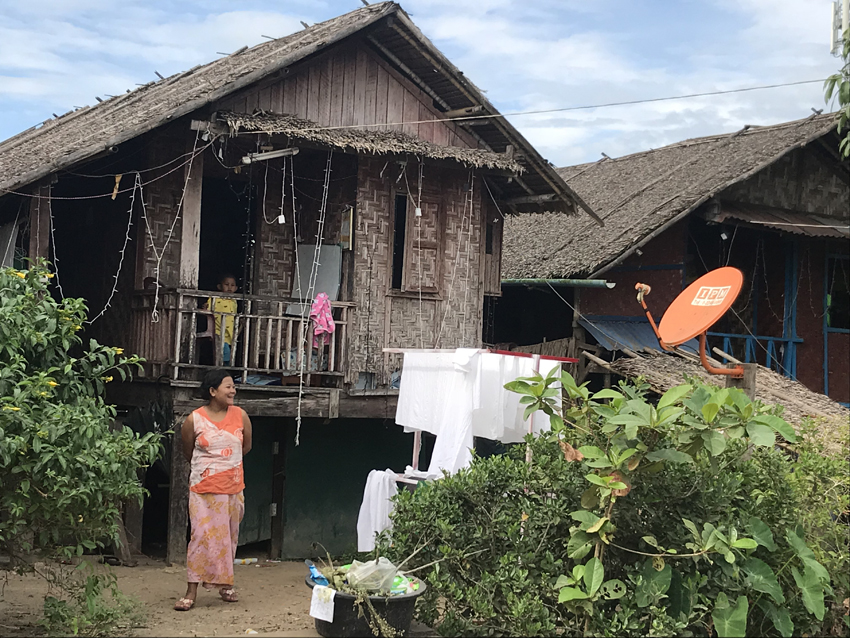Kids fishing for mudskippers in a creek off the Dawei river. I'm not sure what the bamboo rafts are for - a holding place for bamboo before it's sold, or do they use them for transport?
Chapter 1: Dawei city
We hadn't done a lot of planning for our first month in Burma. We would arrive in Yangon and then head out... somewhere. That was about the limit of our prior decision-making. Sometimes that's the best way - certainly it allows flexibility.
So in our windowless Yangon guest house room we consulted the Lonely Planet guidebook and for no particularly good reason chose Dawei - a smallish city, accessible by air in the apparently-not-very touristy southeast of the country, and not too far away - we could make our way slowly back to Yangon from there. We booked a flight, crawled through the traffic to Yangon airport in a taxi and boarded a plane that left on time and gave you a drink and a piece of cake en route. Nothing out of the ordinary there.
Dawei is a provincial capital - a mix of scruffy traditional wooden houses on stilts (many with bright orange satellite dishes attached outside), scruffy colonial brick and plaster buildings, and scruffy undistinguished modern concrete blocks. There was Wi-Fi even in our unassuming guesthouse and a thousand street stalls and small restaurants for us to chose from.
A traditional house - in this part of the world at least. On stilts, with animals, washing, cooking bikes etc underneath, and living quarters above. In the countryside it's similar, minus the satellite dish.
There's a broad muddy brown river with scruffy fishing boats tied up and bamboo rafts in little creeks, and small boys fishing with poles and string, and a lot of small gravel/sand extraction businesses lining the banks. The extraction technique involves a noisy diesel pump bringing the water out of the river through a large plastic pipe, and then guys in longyi (the traditional wrap-around skirt worn by both men and women here) separating the sand and gravel using brooms, spades and gravity. Then the water was returned to the river through a makeshift channel. There are big plans to build a huge international port in Dawei (stage one is apparently due to open next year, though we saw no signs of it whatsoever except for one large yellow JCB heading through town), so maybe the huge piles of sand and gravel in town are destined for there one day.
Stocking up on fruit and testing out my Burmese. Each stall is clean, with its beautiful piles of fruit, fish etc. But the mess outside the market is horrendous. All waste, including plastic bags etc is just dumped in the river, or in rotting heaps on the banks. Makes Greece look pristine!
Dawei also has a fabulous morning market near the river - and by morning I mean that when we got there at 6.30am it was already in full swing. Chaos. Fish and seafood of all sorts, a mass of fruit and vegetables, clothes, and spices and a meat section. Buyers jostle in a good-humoured way down the narrow aisles between the sellers, who sit on raised platforms. Turn up at 8am and you'll miss the freshest dinner ingredients; by the afternoon it looks like the whole place has been abandoned for 20 years. Sellers (mostly women) came with their fruit and vegetables in three-wheeler open-sided vans (motorbike at the front, cart at the back), or carrying sacks or bundles - even live chickens on a motorbike; the numerous fish sellers were presumably the wives, mother, sisters and daughters of the guys on the boats tied up on the riverbank.
Fabulous fish sellers. The "mud" on their cheeks is called thanakha and is used by women, children and to a lesser extent men - even teenage boys - as a sunscreen and also for cosmetic purposes - ie to look beautiful.




